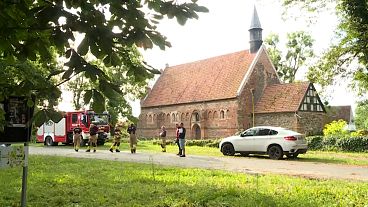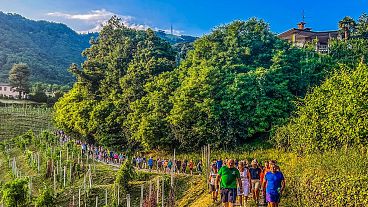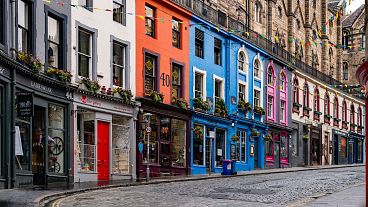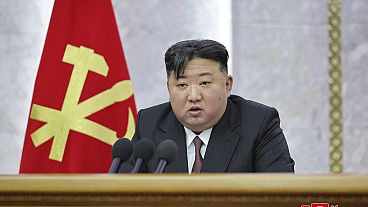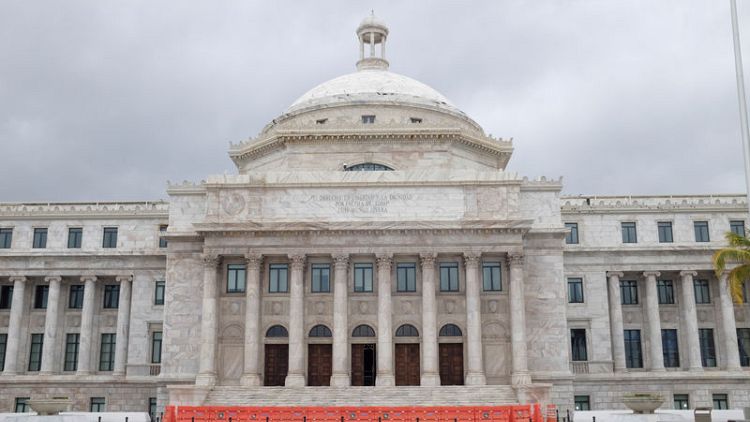By Nick Brown
YABUCOA, Puerto Rico (Reuters) - The nonprofit All Hands and Hearts arrived here in January 2018, to fix roofs in the rural town where Hurricane Maria made its first, most damaging landfall.
"We kept an open-door policy," partnership manager Nicole Franks said at the group's makeshift compound in an old schoolhouse. "We said: 'If you need help, come put your name on our list.'"
Some 750 homeowners did just that. But nearly two years later, more than half are still waiting for help, Franks said.
The volunteer-based organization can only move so fast. And while many homeowners have applied for aid from the Federal Emergency Management Agency (FEMA), it has been hard to come by in a town whose barrios lack street names and addresses, and many residents lack title to their homes. "There’s still a lot of work to be done," Franks said.
Indeed, throughout Puerto Rico, 2017's Hurricane Maria remains a reality, not a memory. Recovery has been slow, which is why many on the island are fretting at signs that recent political turmoil could further hinder the arrival of desperately-needed federal aid.
Governor Ricardo Rosselló resigned late Wednesday after 12 days of sometimes violent protests over corruption arrests in his administration and leaked texts in which he and advisers insulted constituents with misogynistic and homophobic remarks. The rallies are expected to continue this week as his team scrambles to find a successor.
At a July 22 press conference, U.S. President Donald Trump suggested Puerto Rico can not be trusted to manage federal aid, saying it was "in the hands of incompetent people and very corrupt people."
Two days later, Jenniffer Gonzalez, Puerto Rico’s nonvoting member of Congress and a fellow Republican, proposed appointing a "federal coordinator" to provide "direct federal oversight" over Puerto Rico’s recovery.
It is not just Maria funds: earlier this month, the Democratic-led House Energy and Commerce Subcommittee on Health added language to a broader medical spending bill that would increase oversight on $12 billion of Medicaid funding to Puerto Rico. Seven Republican senators, in a letter to U.S. Health & Human Services Secretary Alex Azar, demanded more transparency about Puerto Rico’s use of those funds.
Oversight efforts may receive a push from holders of the island's $120 billion of debt. “It’s encouraging,” said one creditor source, who declined to be named in order to speak frankly. “Making sure money goes where it’s intended on the island benefits citizens and the economy.”
Such rhetoric is concerning to people like Eduardo Bhatia, a Puerto Rico senator and member of the opposition party, who is running for governor in 2020.
Ongoing unrest "will have an enormous adverse effect on federal officials disbursing" aid, Bhatia said. "Hundreds of thousands of poor families are suffering ... The question for me and the leadership of Puerto Rico is how to restore that credibility."
The federal government's hurricane response is seen among locals as too slow already. Rosselló's government requested some $94 billion in relief from Washington, while the U.S. Congress has allocated $42.3 billion, of which only $12.6 billion had been disbursed, according to a May report by San Juan-based think-tank the Center for a New Economy.
Trump fuelled local anger by waiting 13 days to visit Puerto Rico after Maria, as opposed to the four-day wait times after Hurricanes Harvey and Irma, 2017's two other major storms. Earlier this year, he threatened to divert funds from Puerto Rico to help pay for a wall at the U.S.-Mexico border.
FEMA has acknowledged its own missteps, saying in an internal report last year it was understaffed and did not have enough supplies on the island prior to the storm. A spokesman for the agency did not respond to a request for comment on Sunday.
But the delays in help arise from local problems, as well.
As many as half of Puerto Rico’s 1.2 million housing units are thought to lack official title, making it more difficult to qualify for FEMA repair aid.
And the Rosselló administration has come under fire for scenes of rotting food in trailers that never left port, and for being too slow in distributing aid through a nonprofit championed by First Lady Beatriz Rosselló. Local media have reported Justice Secretary Wanda Vazquez - who could replace Rosselló in the governor's mansion - refused to investigate some of these problems.
Oversight on federal dollars is not a bad thing if it means aid continues to flow, said Jose Caraballo Cueto, an economist and professor at the University of Puerto Rico. His fear, though, is that federal lawmakers will drag their feet fighting about it, stalling its arrival altogether.
"That's what has happened in the past, and that was before the protests, before the corruption," Caraballo Cueto said.
Back in Yabucoa, Maria "Marimonse" Alvarez, 64, broke into tears remembering the suffering of her friends after Maria, and the death of one of one of her neighbours. "Yabucoa is recovering, but not because of the government," she said in Spanish. "It’s because of nonprofits, volunteers."
Carmen Baez, founder of nonprofit PRxPR, said the suffering of people like Alvarez is not always obvious. "People have lost their livestock - the chicken that laid the eggs, the pork that provided the meat, their orchards and gardens that provided their vegetables."
Baez said she sees Rosselló's ouster, in the long-term, as a "cleansing," but one that comes with a price for Puerto Rico's poorest.
"The most disadvantaged victims of Hurricane Maria are now the ones that are further suffering under the burden of politics," she said. "If the federal aid was limited and slow before, now it will be worse."
(Reporting by Nick Brown; Editing by Chris Reese)

